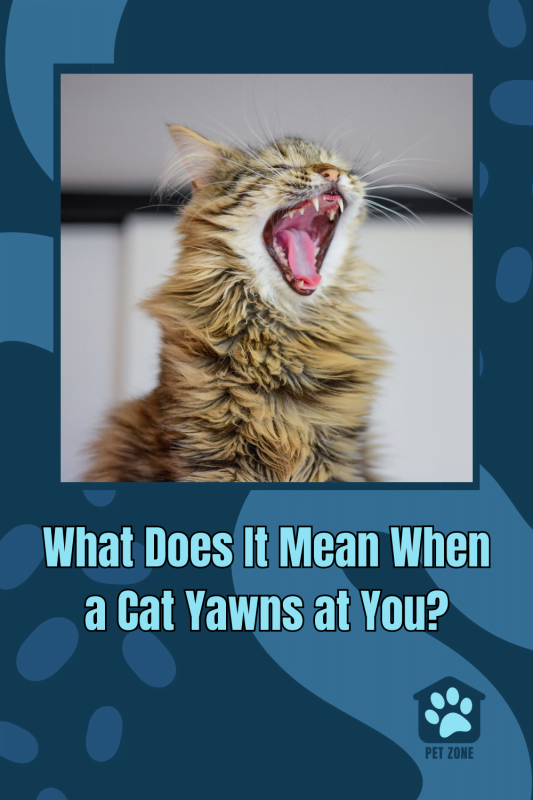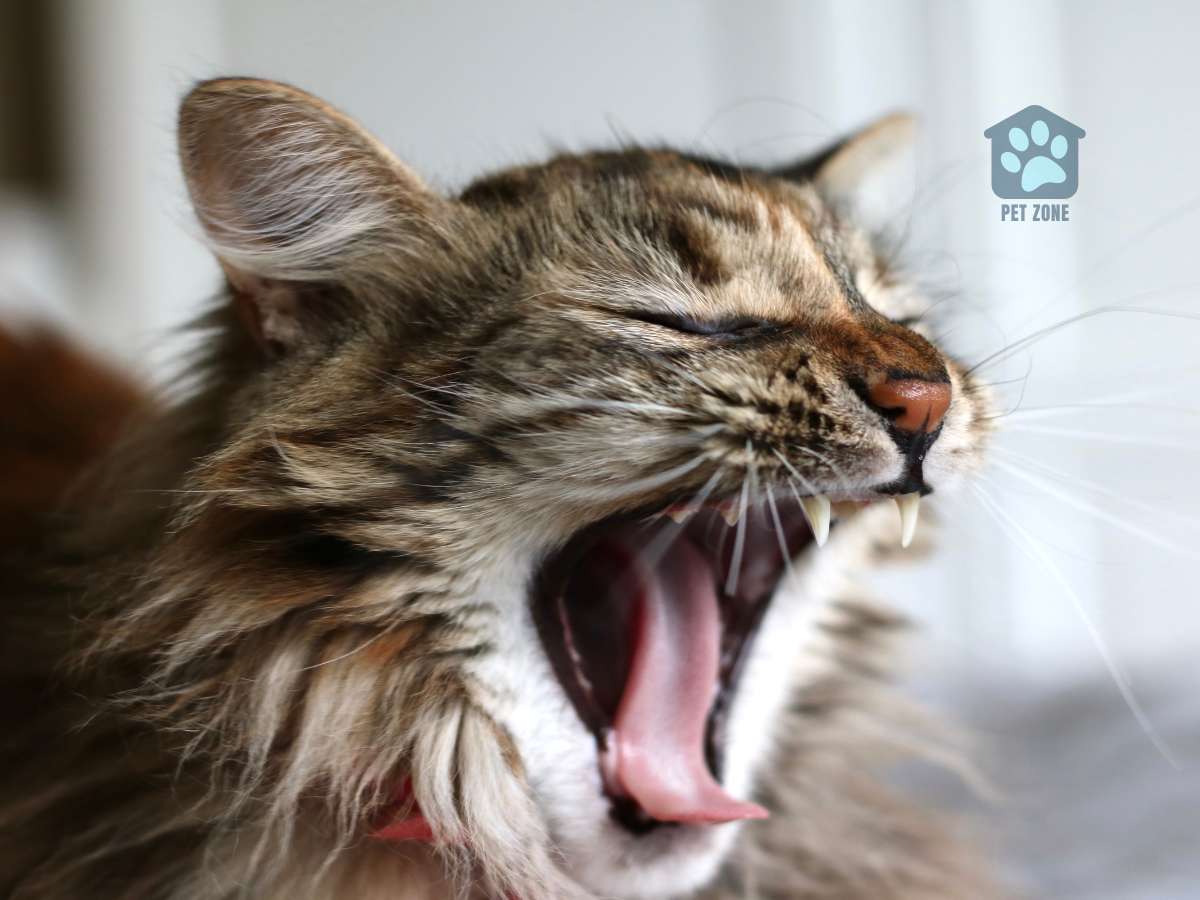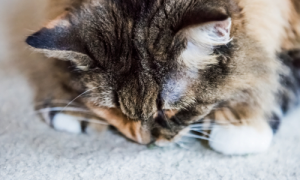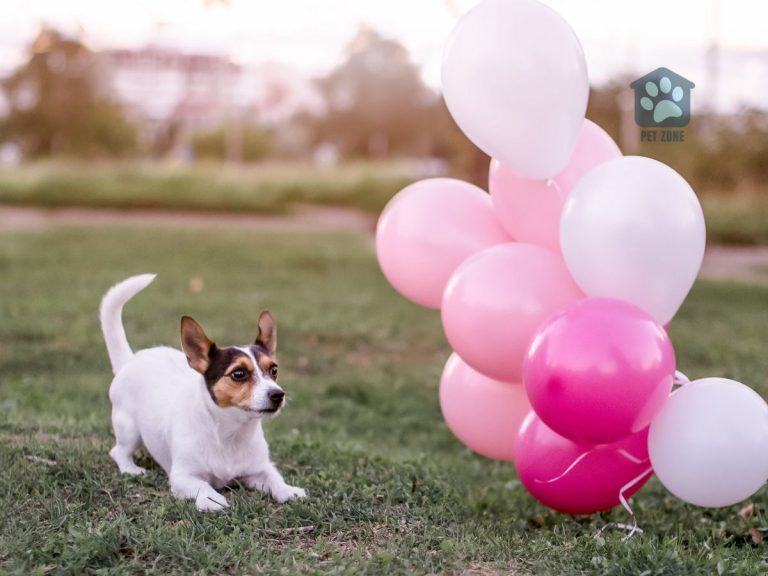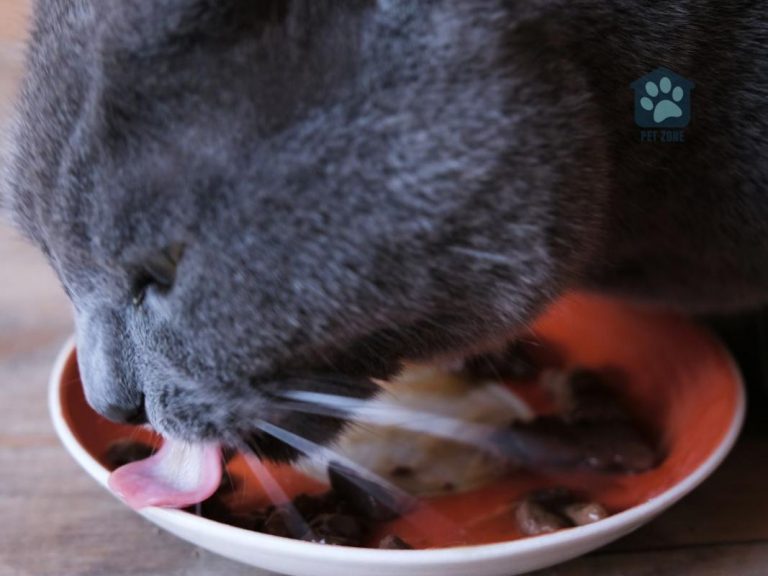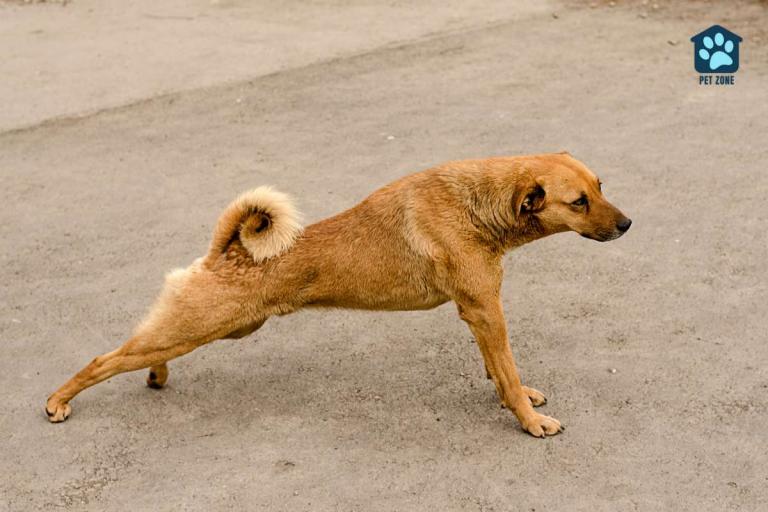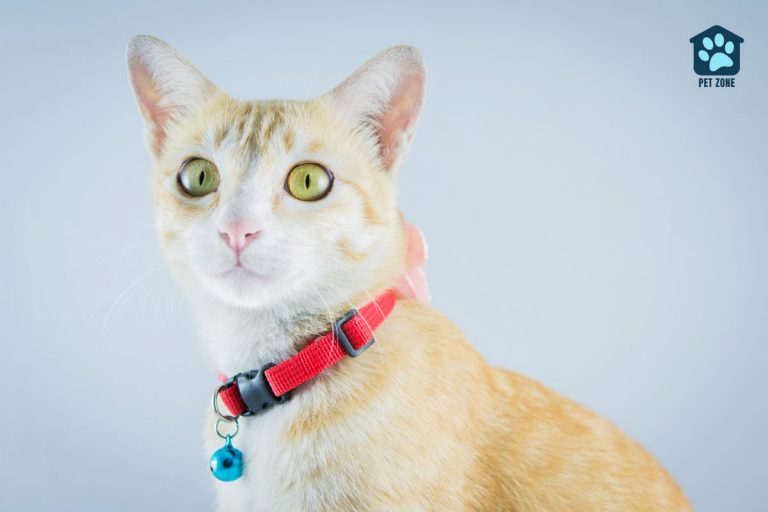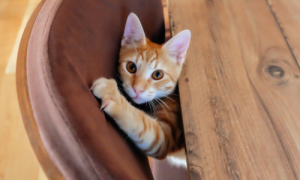Estimated reading time: 13 minutes
Ever caught your cat mid-yawn, mouth wide open, revealing tiny sharp teeth, and thought it was the cutest thing ever? But have you ever wondered what your cat is trying to tell you with that yawn?
When a cat yawns at you, it’s not merely a random occurrence. Cats use yawns as a form of communication, conveying a variety of messages and emotions. From expressing contentment to seeking attention or indicating boredom, a cat’s yawn holds deeper significance. By understanding the meaning behind your cat’s yawn, you can better interpret their needs and strengthen your bond. Join us as we unravel the mystery behind cat yawns and delve into the intriguing world of feline communication.
The Mystery Behind a Cat’s Yawn
Ever wondered why your cat yawns so much? One moment your furry friend is there, looking at you, and then boom! They let out a big yawn.
When your cat yawns, she could be telling you a lot more than you might think. Yawning isn’t just about being tired or bored, though that’s part of it. Cats also yawn as a form of communication. Whether it’s a quick yawn and stretch or a big yawn that shows off every tooth, each one is unique.
Why Do Cats Yawn So Much?
First, let’s get one thing straight: cats yawn for the same reasons we do. When we yawn, it’s often because our bodies need more oxygen, especially when we’re tired. Yawning helps us take in more air and expel carbon dioxide.
Our feline friends are no different. They yawn to take in more oxygen too, especially if they’ve been sleeping or resting for a while.
Cats also yawn when they’re feeling relaxed and content. Ever noticed how your cat seems to yawn after a good play session, or after enjoying their favorite meal? That’s your cat telling you that they’re feeling good and satisfied.
Lastly, cats yawn when they’re bored. It’s true! If your cat is yawning a lot, it might be their way of saying, “Hey, human, I need some entertainment here!”
So next time you see your cat yawning, pay attention. Are they tired, content, or just a little bored? It’s a mystery you get to solve.
What Your Cat May Be Telling You Through Their Yawn
Sometimes, a cat will yawn because they’re just waking up from a nap and stretching their muscles. They may also yawn to take in more oxygen and get ready for their next big adventure, whether that’s chasing a toy or exploring a new corner of your home.
A yawn might also be your cat’s way of saying, “Hey, I’m feeling pretty good.” If you see your cat give a big yawn after a hearty meal or a fun play session, that’s a sign they’re content and satisfied.
But what if your cat is yawning excessively and doesn’t seem to be tired or relaxed? They might be trying to tell you that they’re bored and need some stimulation. This is where you come in. You might need to introduce some new toys, play with your cat, or even take your cat for a stroll if they’re comfortable with it.
And sometimes, your cat may yawn when they see another cat or another animal yawn. It’s not quite understood why this happens, but it could be a form of contagious yawning, much like what happens among humans.
So, the next time you notice your cat yawning, remember that it’s not just a simple act. It could be your cat’s unique way of communicating with you
Decoding Cat Body Language
Cats may not speak our language, but they do have their unique ways to communicate, and a big part of that is body language. A yawn is just one piece of the puzzle. But when we pair that yawn with other signals, we can start to get a clear picture of what our cat is feeling.
So, what does it mean when your cat yawns and stretches? Usually, this is a sign of contentment or a way to shake off sleep or inactivity. After all, who doesn’t love a good stretch after a nap?
Notice your cat yawning and grooming themselves excessively? This could be a sign of stress or discomfort. Yawning, in this case, is a displacement behavior. Cats do this when they’re unsure of how to react to a situation. It’s their way of coping.
What about a yawn followed by your cat rubbing against your leg or purring loudly? That’s probably their way of saying, “I’m happy to see you!” or “I love you!” Cats are not as emotionally closed off as some might think!
The Multifaceted Nature of a Cat’s Yawn
A cat’s yawn isn’t a one-size-fits-all message. Just like humans, cats have individual personalities and moods.
For instance, an average cat yawn might just be a sign of sleepiness. Your cat’s yawning could mean they’re shaking off some sleep after a nap. But a yawn could also signal that your cat is bored. If you’ve been ignoring them or haven’t played with them for a while, that yawn might be a little nudge to remind you of your duties.
Your cat’s yawn could also be a sign of satisfaction or contentment. After a tasty meal or a good cuddle session, your cat might let out a yawn, telling you, “That was good. I’m satisfied.”
Finally, remember that a cat’s yawn might also be a reaction to another cat or human yawning. This “contagious yawning” phenomenon still has scientists scratching their heads, but it’s certainly fascinating!
Remember, the next time you see your cat yawn, take a moment to consider what they might be telling you. As pet parents, these little clues help us connect with our furry friends on a deeper level.
Is Your Cat Bored?
One of the reasons a cat might stretch and yawn is because they’re bored. But how can you tell if that’s really the case?
If your cat is yawning a lot, especially if they’re also staring at you, it might be a hint that they’re looking for some action. Cats need both physical and mental stimulation. If they’ve been lounging around all day with nothing to do, that yawn could be their way of saying, “I’m bored!”
Indoor cats that aren’t given enough stimulation may yawn out of boredom. Do they have enough toys to keep them entertained? Is there a window they can look out of to watch the birds and the world go by? If not, you might want to consider making some changes.
Remember that play is an essential part of pet care. So, if you notice your cat yawning a lot, it might be time to whip out the laser pointer or their favorite feather toy for a play session. This will not only alleviate their boredom but also strengthen your bond.
Lastly, take note of any other signs of boredom. Is your cat overeating or grooming excessively? These could be additional signs of boredom.
Remember, a stimulated cat is a happy cat. So, make sure your fur baby has enough to keep their mind and body active.
Yawning as a Form of Communication
We’ve established that a yawn is not just a yawn when it comes to cats. It can be a form of communication, a secret language if you will. Cats may not have words like we do, but they sure know how to express themselves!
When your cat yawns, she could be saying many things. A yawn after a nap could mean, “I’m just waking up and getting ready for some action!” On the other hand, a yawn, while she’s lounging lazily, could be her way of saying, “I’m content and relaxed.”
Now, if you notice your cat yawning while looking at you, they might be saying, “Hey, I need some attention here!” Or if they’re yawning excessively without any apparent reason, they could be hinting, “I’m bored! Let’s play!”
Another interesting aspect is “contagious yawning”. Do you know how you sometimes yawn when you see someone else yawn? Well, cats can do that too! If your cat yawns when they see you or another cat yawn, that’s their way of mirroring your actions, a sign of social bonding.
In essence, yawning is a cat’s way of communicating without words. It’s up to us, the cat parents, to learn their language and respond accordingly.
Do Cats Yawn When They See Humans Yawn?
You may have noticed something interesting: sometimes, when you yawn, your cat seems to yawn too. This is a phenomenon known as contagious yawning, and it’s not just a human trait. Cats can also ‘catch’ yawns!
While the exact reasons for contagious yawning are still under scientific debate, one theory is that it’s a form of empathy. It might be a way for your cat to connect with you, to say, “I feel you. I’m in sync with you.”
Another theory suggests that contagious yawning is a form of social communication. So when your cat sees you yawn and then yawns themselves, they might be trying to ‘speak’ to you in their way.
But, it’s also possible that your cat is simply reacting to a visual cue. They see your mouth open wide in a yawn, and it triggers a similar response in them.
Whether it’s empathy, communication, or a mere response to a visual cue, contagious yawning between humans and cats is a fascinating subject. It’s another reminder of the bond that we share with our feline friends.
Other Reasons That Cause Cats to Yawn
First, yawning helps to regulate brain temperature. A good yawn can cool down the brain, helping it function better. It’s similar to how a computer’s fan works to keep it from overheating.
Another reason could be stress or anxiety. Sometimes cats yawn as a form of displacement behavior. It’s like their way of saying, “I’m not sure what’s happening or how I should react, so I’m going to yawn instead.”
Sometimes, cats yawn to display their teeth and assert dominance, especially among other cats. A wide-mouthed yawn that shows off all their teeth might be their way of saying, “See these teeth? I’m not a cat to be messed with!”
Lastly, certain medical conditions can cause excessive yawning in cats. If your cat is yawning more than usual and you’ve noticed other signs of discomfort, it’s always a good idea to consult a vet.
Remember, yawning in cats is natural, but it’s also nuanced. Each yawn may tell a different story, and it’s up to us to listen.
When a Cat is Simply Tired
Sometimes a yawn is just a yawn. Amid all the discussions about hidden meanings and secret languages, we must remember that often, cats yawn when they’re tired. Just like us humans, cats yawn to help wake up their bodies and minds.
After a busy day full of exploration, play, and maybe a few successful hunts (be they real or toy mice), a cat will yawn to draw in a deep breath of oxygen. This oxygen helps remove excess carbon dioxide and helps them shake off any drowsiness. This is particularly common in older cats or kittens who spend much of their time sleeping.
In fact, the yawn can be the first step in a cat’s wake-up routine. Notice how your cat will usually yawn, stretch, and then start their grooming process? It’s like their version of a morning coffee!
So, next time your cat lets out a big yawn and then settles down for a nap, just remember – sometimes, a cat is simply tired.
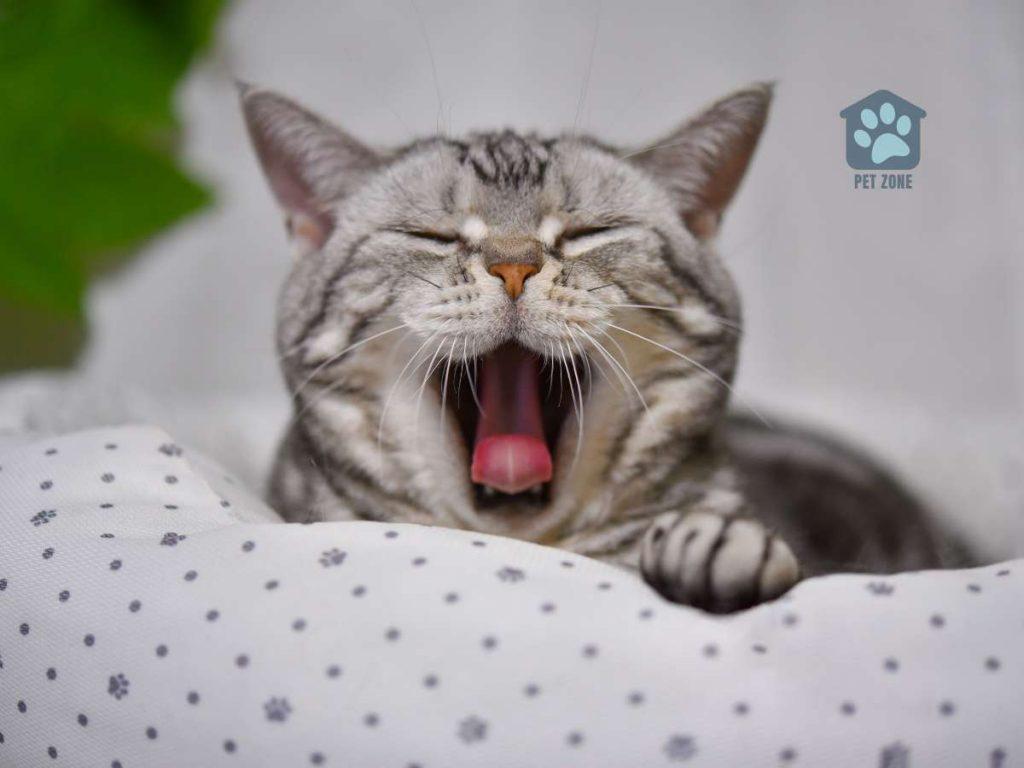
A Yawn Signifying Contentment
Another wonderful thing a cat yawn can signify is contentment. That’s right, a yawn may indicate that your cat is happy and satisfied. But how can we differentiate this from other types of yawns?
Imagine this: you and your cat have just finished a delightful play session. They’ve chased the laser pointer, attacked the feather toy, and now they’re sprawled out, purring. Suddenly, they let out a long, slow yawn. That’s not just any yawn – it’s a yawn of contentment!
Or consider this scenario: your cat has just finished a hearty meal. They groom themselves meticulously, find a comfy spot, and let out a yawn. That’s your cat, telling you they’re feeling pretty good about life right now.
Cats love routine and predictability. When they’re comfortable, well-fed, and secure in their environment, they’re content. And that contentment might just slip out in a relaxed, satisfied yawn.
So next time your cat lets out a big yawn after some good food or fun playtime, don’t just assume they’re tired. They might be telling you, “Hey, life is good!”
When Your Cat Wants Something
A yawn from your cat might not always be about sleepiness or contentment. Sometimes, she might yawn as a way to tell you she wants something. A cat’s yawn could be a tiny demand or request.
For instance, if your cat yawns while staring right at you, she might be saying, “Hey, I could use some attention over here!” If they accompany their yawn with a stretch and a pointed look at their food bowl, they’re likely hinting, “You know, I wouldn’t say no to a snack right about now.”
Or, your cat might yawn as they sit by the door, indicating that they’d like to go out and explore. They could also yawn and then curl up on your lap, signifying that they’re ready for a good cuddling session.
And remember, if your cat yawns a lot without any apparent reason, it might be their way of saying they’re bored and need some playtime.
Cats are mysterious creatures with their language. Learning to understand it is an ongoing process. But once you start noticing these little signs, you’ll discover a whole new layer to your bond with your cat.
Do Cats Yawn to Get Attention?
Cats have an array of ways to get your attention. They might meow, rub against your legs, or jump on your keyboard while you’re working. But did you know that a yawn can also be an attention-seeking behavior in cats?
Just as humans may yawn to subtly indicate that it’s time to wrap up a boring meeting, cats yawn to get their message across. When your cat yawns in your direction, it might be their way of saying, “Hey, look at me! I’m bored. Can we play?”
Similarly, if your cat yawns while they’re lounging on your lap, they might be hinting, “This is nice, but I could use a little petting too.” And, if you see your cat yawning as they gaze longingly out of the window, it might be their way of telling you that it’s time for a little outdoor adventure.
Wrapping Up the Mysteries of the Cat Yawn
From expressing contentment to being a subtle form of communication, this cat behavior certainly has more to it than meets the eye.
Just remember that every cat is unique. What one yawn means for one cat may not mean the same for another. The key lies in understanding your cat’s body language, behaviors, and individual quirks.
While yawning is a natural behavior in cats, excessive yawning can sometimes indicate stress or health issues. So, if you notice that your cat is yawning excessively or in a way that doesn’t seem normal, it’s always a good idea to consult with a vet.
Understanding the mystery behind a cat’s yawn brings us a step closer to understanding our fascinating feline friends. It strengthens the bond we share with them and enables us to provide better care.
So, next time your cat yawns, rather than just finding it cute (which, let’s be honest, it is), take a moment to think about what they might be trying to tell you. After all, every yawn has a story.
